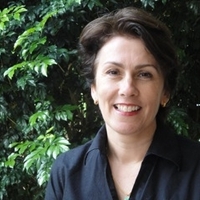- Add Social Profiles(Facebook, Twitter, etc.)
Sandie Wong
Charles Sturt University, School of Teacher Education, Department Member
•
Growing recognition of the complexity of children's lives has led to strong advocacy in education research literature for greater collaboration between researchers from different paradigms to address the 'wicked' problems that face... more
Growing recognition of the complexity of children's lives has led to strong advocacy in education research literature for greater collaboration between researchers from different paradigms to address the 'wicked' problems that face contemporary children and families. There is little literature, however, exploring how collaboration works in practice. This paper, drawing on researcher reflective narrative, and using Cultural Historical Activity Theory as a heuristic framework, describes and critiques the formative stages of an educational research collaborative group of five early and one mid-career early childhood education researchers (the authors), from two universities, and with quite different epistemological and ontological understandings. It outlines, from an insider perspective, some of the outcomes, challenges and tensions associated with participating in the research group, and concludes by providing some implications for policy and considerations for those contemplating forming a collaborative group.
